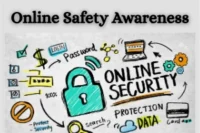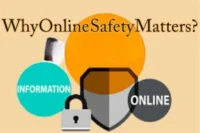What is the Deep Web and Dark Web?
Published: 23 Jun 2025
The internet is vast, but most daily Google searches, social media, and news websites are just the surface. Beneath this lies the Deep Web and an even darker layer, the Dark Web.
Many people confuse these terms or assume both are illegal. However, while the Deep Web is a collection of private, unindexed web pages (like your email or medical records), the Dark Web is a hidden part of the internet that requires special tools like Tor.
So, what makes these layers different? Are they dangerous? And should you ever explore them? Let’s dive deep into the digital underworld to uncover the truth.
What is the Deep Web?
The Deep Web refers to all parts of the internet that are not indexed by search engines like Google, Bing, or Yahoo. This means that the pages found on the Deep Web cannot be accessed via standard searches but are still perfectly legal and commonly used.
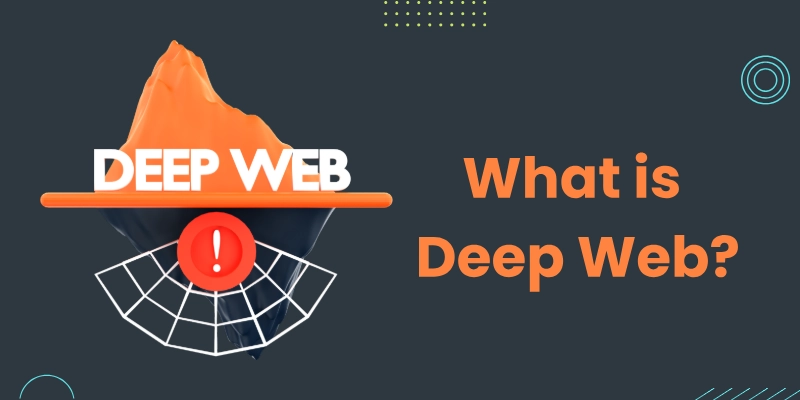
Features of the Deep Web
- Password-protected content (email inboxes, online banking, social media messages)
- Confidential business databases
- Private academic and government records
- Subscription-based content (Netflix, premium news articles)
- Internal corporate networks
How Big is the Deep Web?
Experts estimate that the Deep Web is 400–500 times larger than the Surface Web. It includes all web pages that require authentication, meaning every time you log into a website, you access part of the Deep Web.
Is the Deep Web Safe?
Yes! Most of us interact with the Deep Web daily without realizing it. It is not illegal or dangerous. However, some areas of the Deep Web contain sensitive information that, if exposed, could lead to privacy risks.
Yes most of us interact with the deep web daily without realizing
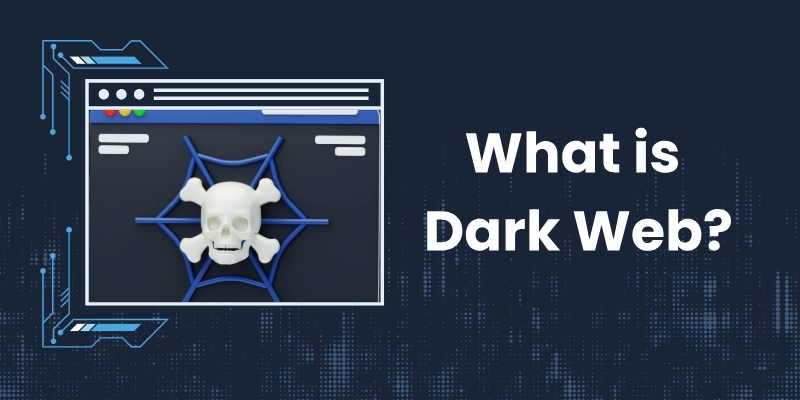
What is the Dark Web?
The Dark Web is a small part of the Deep Web that is intentionally hidden and only accessible through special software like Tor (The Onion Router). Unlike the Deep Web, which is mostly harmless, the Dark Web is known for anonymity, making it a hub for both privacy-conscious users and illegal activities.
Features of the Dark Web
- Requires special browsers like Tor or I2P to access
- Sites have “.onion” domain extensions
- High level of anonymity
- A mix of legal and illegal activities
What is Found on the Dark Web?
The Dark Web contains a mix of content, some legal and some illegal. Here are some things found there:
Legal Content
- Privacy forums and whistleblower platforms (like SecureDrop)
- Cryptocurrency transactions
- Independent journalism in countries with censorship
Illegal Content
- Drug marketplaces (e.g., Silk Road, which was shut down)
- Hacking services and stolen data sales
- Fake documents and counterfeit goods
How Do People Access the Dark Web?
To access the Dark Web, users must use the Tor Browser, which encrypts traffic through multiple nodes, keeping identities anonymous. However, this anonymity attracts cybercriminals and illegal activities, making it a risky space.
Key Differences: Deep Web vs. Dark Web
| Feature | Deep Web | Dark Web |
| Accessibility | Requires login or direct URL | Requires Tor or I2P |
| Indexing | Not indexed by search engines | Hidden and anonymous |
| Usage | Used for private accounts, databases, business tools | Used for anonymity, privacy, and sometimes illegal activities |
| Security Risks | Low (unless sensitive data leaks) | High (cybercrime, scams, hacking risks) |
| Legality | Completely legal | Legal to access, but illegal activities exist |
Is It Legal to Use the Dark Web?
Yes, accessing the Dark Web is legal in most countries. However, participating in illegal activities (such as buying drugs or hacking services) is a crime.
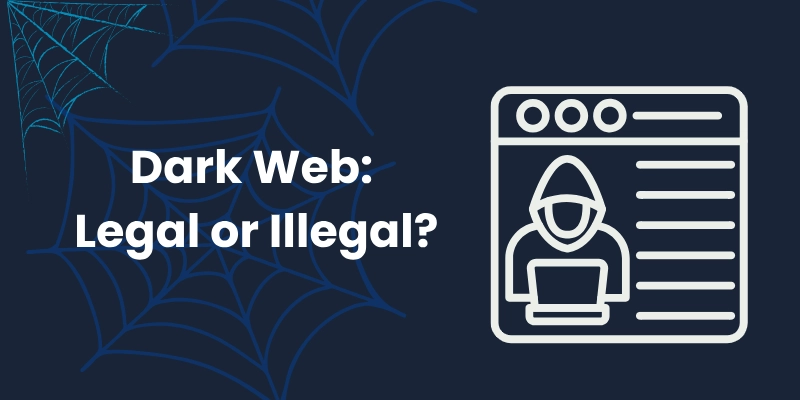
Countries Where the Dark Web is Restricted
Some countries heavily regulate or ban Dark Web access:
- China blocks Tor and VPNs
- Russia monitors and restricts Dark Web access
- Iran & North Korea heavily censor internet access
Despite restrictions, privacy advocates and journalists often use the Dark Web for secure communication and research in oppressive regimes.
Risks of Accessing the Dark Web
While it offers anonymity, the Dark Web is also full of risks.
Cybersecurity Risks
- Malware & Viruses – Many Dark Web sites contain harmful software
- Scams & Fraud – Fake marketplaces steal users’ money
- Surveillance – Law enforcement tracks illegal activities
Ethical Concerns
- Many criminal activities take place here
- Stolen personal data and illegal goods are sold
- Human trafficking and hitman services (though often scams)
How to Stay Safe?
If you choose to explore the Dark Web, take precautions:
✔ Use VPN & Tor for extra privacy
✔ Avoid clicking unknown links
✔ Never share personal information
| Myths About the Deep Web and Dark Web |
|---|
Myth 1: The Deep Web and Dark Web Are the Same Fact: The Deep Web is simply unindexed content (like private emails), while the Dark Web requires special software and is more secretive. Myth 2: The Dark Web is 100% IllegalFact: Not everything on the Dark Web is illegal activists and journalists use it for privacy. Myth 3: Only Hackers Use the Dark Web Fact: While cybercriminals exist, many people use it for privacy reasons. |
Conclusion: Should You Explore the Deep or Dark Web?
The Deep Web is a normal part of the internet that protects your data. On the other hand, the Dark Web is an anonymous space that, while having legal uses, is also home to illicit activities.
If you’re curious about the Dark Web, exercise extreme caution cybercriminals and law enforcement monitor illegal activity closely. Always prioritize your safety and privacy.
Please don’t forget to leave a review. Your feedback helps us improve and provide better service.
FAQs
Below are some frequently asked questions to help clarify the differences between the Deep Web and the Dark Web.
No, search engines like Google cannot index Deep Web content. This includes pages behind paywalls, login-protected sites, academic databases, or private files that require special access permissions.
It depends. While there are legal forums and resources on the Dark Web, many areas contain scams, illegal marketplaces, and malware. Caution and protective tools like a VPN and Tor are strongly recommended.
Yes, visiting the Dark Web using browsers like Tor is legal in many countries. However, engaging in illegal activities such as buying illicit goods or services remains against the law.
The Deep Web is estimated to be 400–500 times larger than the Surface Web. It includes vast amounts of academic research, medical records, and confidential databases that are not publicly indexed.
Exit the site immediately. Clear your browser history and cache, and do not download or interact with any suspicious content. Consider running a malware scan as a precaution.
Yes, you typically need the Tor browser or a similar tool that allows you to access .onion sites. These browsers anonymize your activity and provide access to Dark Web content.
Yes, many people access the Deep Web daily without realizing it like when checking private emails, logging into bank accounts, or using cloud storage platforms.
No, not everything is illegal. The Dark Web also hosts forums, whistleblower platforms, and privacy-focused communication tools that are entirely legal and useful.
People use the Dark Web for various reasons, including preserving anonymity, avoiding censorship, or conducting criminal activities. Journalists and activists often use it for secure communication.
Yes, the Deep Web is generally safe and includes everyday services like academic portals and private data systems. It’s not inherently dangerous as long as you stick to trusted sources.

- Be Respectful
- Stay Relevant
- Stay Positive
- True Feedback
- Encourage Discussion
- Avoid Spamming
- No Fake News
- Don't Copy-Paste
- No Personal Attacks

- Be Respectful
- Stay Relevant
- Stay Positive
- True Feedback
- Encourage Discussion
- Avoid Spamming
- No Fake News
- Don't Copy-Paste
- No Personal Attacks


